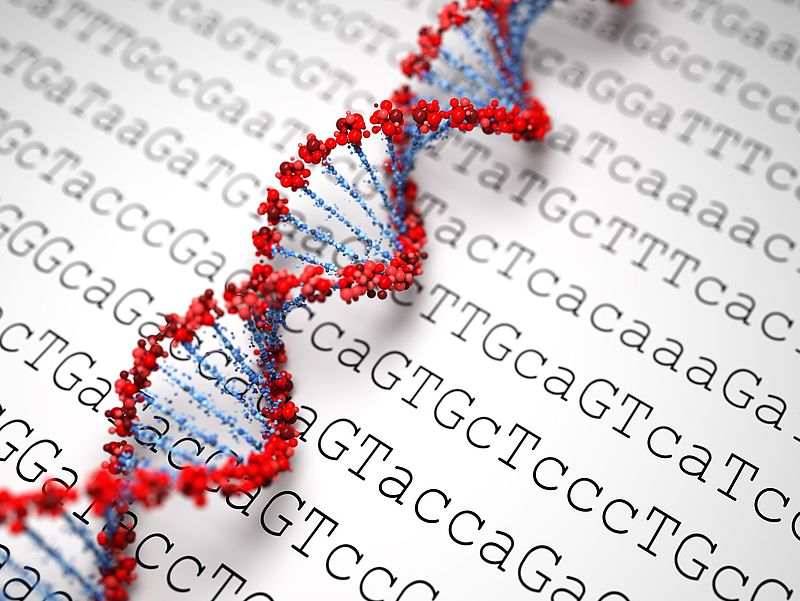In the past 15 years, 200 gene loci in the human genome have already been linked to the risk of CHD, the leading cause of death worldwide. Yet researchers do not fully understand how these genetic variants alter the function of proteins, cells or tissues, causing disease - knowledge that could lead to new treatments.
Large-scale study evaluates data from more than one million people
In a large-scale study, scientists from the international CARDIoGRAMplusC4D consortium have analyzed DNA data from more than one million people, including over 200,000 with CHD, for the first time. The researchers discovered 68 new gene loci, or the position of a gene in the genome, associated with increased CHD risk, bringing the total number to more than 250. In addition, they developed a novel approach involving eight different lines of evidence and used it to identify 220 causal candidate genes underlying the associated loci. Exemplarily, they tested the role of one of these putative causative genes using genome editing and cell-based experiments. In doing so, they demonstrated the power of their method to identify how specific genes might be involved in the development of CHD.
The work, published Dec. 6, 2022, in Nature Genetics, thus provides a complete picture of the genetic causes of CHD, offers a list of genes and genetic variants for future study, and demonstrates an analysis pipeline for identifying causal genes that can also be used to study other diseases through genome-wide association studies (GWAS).
"This long-standing study is groundbreaking in the field of coronary heart disease genetics," said Prof. Jeanette Erdmann, PhD, co-lead author of the study, DZHK professor and director of the Institute of Cardiogenetics at the University of Lübeck. "We hope that our approach will encourage research groups involved in genome-wide association studies of other diseases to similarly systematically investigate genetic loci with multiple lines of evidence and make their resources available for other researchers to query," says Prof. Erdmann. "After all, these studies should not end with the publication of gene lists - rather, they pave the way for new mechanistic investigations that are indispensable for developing new therapies. We have been successfully pursuing this strategy at the Institute of Cardiogenetics for ten years."
Worldwide collaboration of researchers
The data will be made available to the research community through the Common Metabolic Diseases Knowledge Portal (CMDKP). The CMDKP was developed by a team of scientists at the Broad Institute, the University of Michigan, the University of California at San Diego, the European Bioinformatics Institute, and many other collaborators as part of a global scientific consortium. The CMDKP aggregates analyzes, and makes available human genetic and functional genomic information associated with common metabolic diseases and traits, while protecting the integrity and confidentiality of the underlying data (see: hugeamp.org/method.html ).
With the advent of large biobanks and cohorts in recent years, the research community has been able to examine increasingly large data sets for genetic associations with disease. In the current study, the researchers aimed to expand the search for genetic associations to heart disease and show that their new analytical approach can reveal the functional impact of disease-related loci. For the current study, consortium scientists collected genetic and medical data from more than 1 million people of predominantly European ancestry from the UK Biobank, the CARDIoGRAMplusC4D consortium, prospective cohorts, hospital biobanks, and clinical trials, including nearly 200,000 people with CHD.
They performed a GWAS meta-analysis of the entire data set, searching DNA sites in each person's genome to identify genetic variants more likely to be found in affected individuals. They found 241 locations in the genome associated with CHD risk, including 30 that had never previously been linked to the disease.
Most of these new loci were associated with very little change in CHD risk, suggesting that few, if any, common genetic variants with significant effects on CHD risk remain to be found by studying populations of primarily European ancestry.
Combined data sets provided in-depth insights
To increase the power of the study, the researchers combined their large data set with data from tens of thousands of individuals of East Asian descent from Biobank Japan, including 29,000 with CHD. The combined analysis revealed an additional 38 loci associated with CHD risk. "Future GWAS that include a larger number of populations with different ancestry will likely provide more insights than those limited to participants with European ancestry," says Jeanette Erdmann.
The team wanted to go further, not only finding these GWAS "hits" but also linking them to nearby genes that cause CHD when functionally disrupted.
The researchers applied their analysis pipeline to all CHD risk loci to search for disease-causing genes systematically. Those genes that were found to meet three or more of the eight criteria were considered to have a high probability of being the causal genes underlying GWAS hits. The team screened one of these causal genes, MYO9B, using genome editing and cell-based experiments and found that it appears to mediate risk for CHD by regulating vascular cell motility.
To explore the potential clinical utility of their findings, the researchers created a new polygenic risk score that includes more than 2 million variants in the genome and predicts the risk of both new-onset and recurrent CHD. The score was based on data from about three times as many people as the existing risk score for CHD. Although the team's score better predicted an individual's risk for new and recurrent CHD, the improvement was surprisingly modest given the significant increase in GWAS sample size. This suggests that greater ancestral diversity and advances in polygenic scoring methods may be more likely to lead to substantial improvements in polygenic risk scores than can be achieved by ever-larger single-ancestor GWAS.
Nearly 100 researchers involved from more than 20 countries
The work involved nearly 100 researchers from more than 20 countries, with Tao Jiang, Anuj Goel, Stavroula Kanoni, Brooke Wolford, Deepak Atri, Rajat M Gupta, Jeanette Erdmann, Nilesh J Samani, Heribert Schunkert, Hugh Watkins, Cristen J Willer, Panos Deloukas and Sekar Kathiresan playing key roles. Collaborating institutions include the University of Oxford, Queen Mary University of London, University of Michigan, University of Leicester, University of Munich, and University of Lübeck.
The work was funded in part by the National Heart, Lung, and Blood Institute, National Institutes of Health, US Department of Health and Human Services, National Human Genome Research Institute, American Heart Association, the UK Medical Research Council, Health Data Research UK, the German Centre for Cardiovascular Research (DZHK), and the British Heart Foundation.
Publication:
Discovery and systematic characterization of risk variants and genes for coronary artery disease in over a million participants: https://doi.org/10.1038/s41588-022-01233-6
Scientific contact person:
Prof. Dr. Jeanette Erdmann. Institut für Kardiogenetik, Universität zu Lübeck, jeanette.erdmann(at)uni-luebeck.de, 0451 31018300 oder 0174 4744602
Prof. Heribert Schunkert, Technische Universität München, Deutsches Herzzentrum München, Klinik für Herz- und Kreislauferkrankungen, schunkert(at)dhm.mhn.de


